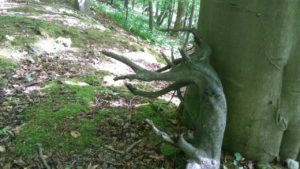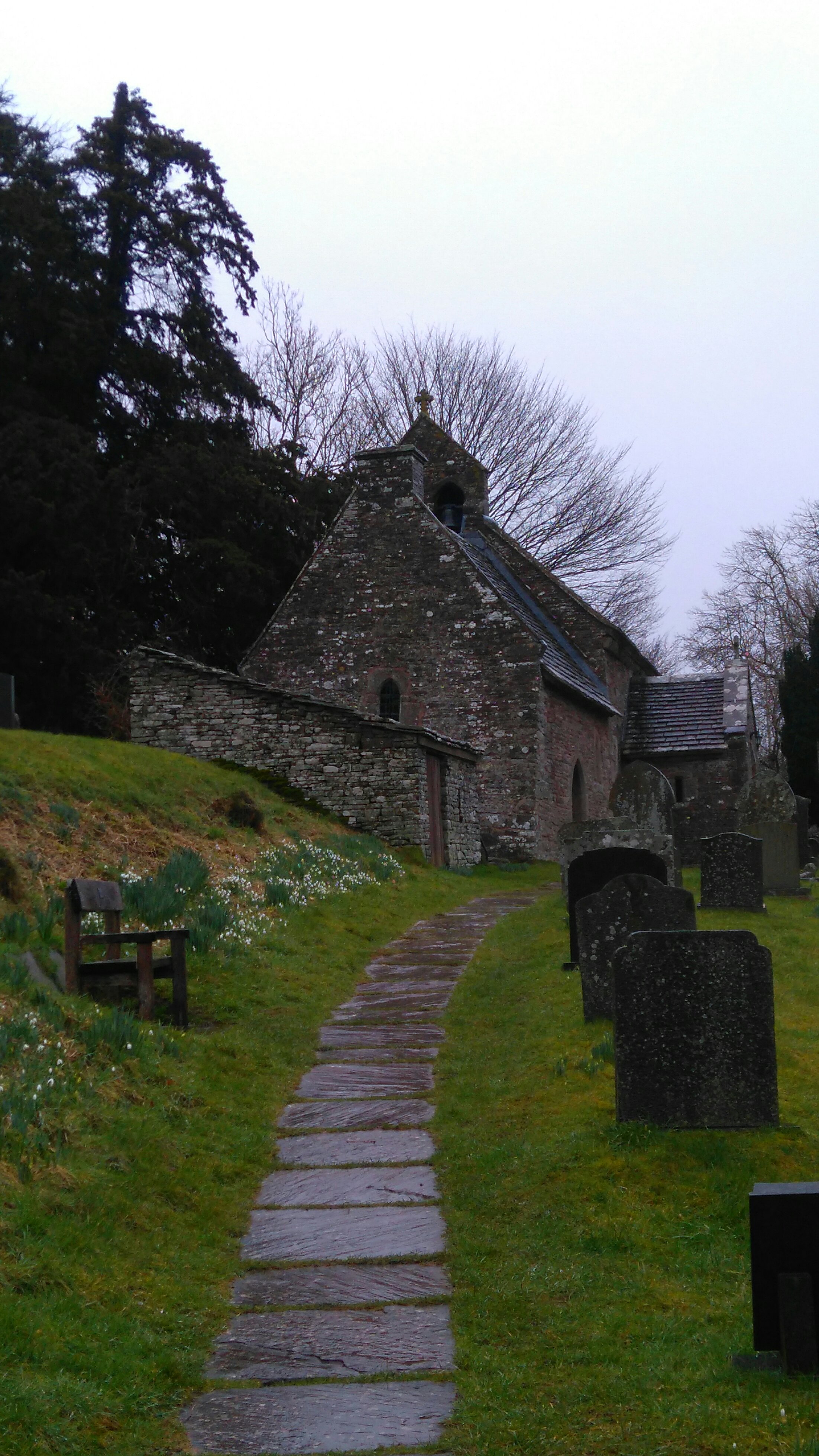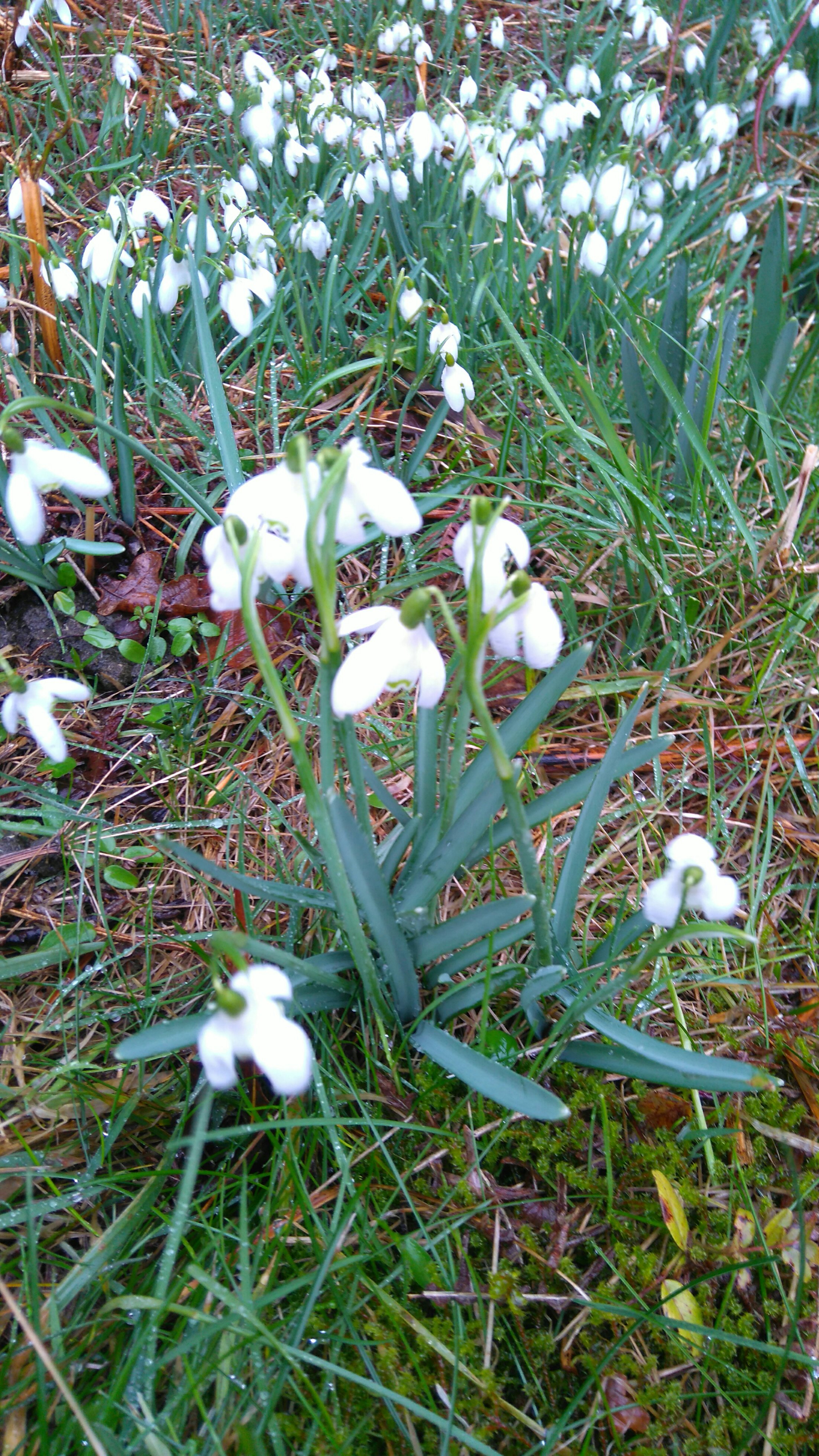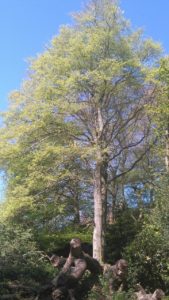On the day for Ashes,
Memories of last night’s firelight
Bright behind our eyes,
We tentatively pushed open the old door
At St Issui’s.
It was a welcome haven
After several miles of twisting, muddy lanes,
The path bordered by nodding snowdrops.
The simple chapel, its wooden beams pegged safely together for several centuries
Was shelter enough for these pilgrims.
Inside, signs of worship for many generations,
The oldest font in Wales by the church door.
Now twice a month the feast is celebrated here
And rural folk give thanks for renewed blessings.
Our visit over, rested,
We stepped back through the lych gate,
Passed the well
And back into real time,
Ready to reset our lives in the next forty days.
Category Archives: silence
We bring our anger
Nothing is unmentionable.
Silence can hide as well as reveal.
Anger can last a long, long time:
More than a table-turning moment.
It comes like a wave far out at sea
And by the time it arrives
It can swallow a city;
Like a whale emerging from the deep,
To engulf a thousand herrings.
It can begin like a quiet fart
In the heart of a sleeping volcano,
A rumble, a crack, a hiss
Which breaks the crust
Allowing a river to emerge and run
Red Hot and raging down the side,
Black at the edges sweeping away
Everything.
Maybe anger can build a house
For someone who is homeless:
Bright flower of justice emerging
From a flattened landscape.
Maybe anger can lead to safety:
New ideas and policies to keep safe
Creatures of all kinds teetering
On the edge, calling them back.
Maybe anger can forge a peace
From the devastation of war,
Provide the energy to bring together
The hopeless, maimed and fearful ones.
Maybe anger can be a new route to faith,
When the old worn way has become too broad
And the self interest of insiders too indifferent,
Maybe anger can rip the door off its hinges.
I am angry
Kylie eleison
Words like arrows
‘Use words like arrows’, Hilary Mantel said in her final Reith Lecture for 2017.
Now the summer holidays are here I take out my quiver and inspect it. Over the last couple of terms I’ve been living on borrowed arrows with little time to make any more. Battle weary I’ve had to count my arrows carefully, when and where to use them. On this rainy summer morning, I can at last bask in the idea at least that writing stuff can go back up the list of my priorities for the next few weeks.
Yesterday I saw red crocosmia in the park and it looked like a series of little flames running along a thin wire, each one flaring out in turn until the final tip glowed bright. At the junction there were a few tall stems of Rose Bay Willow Herb, also known as Fireweed. Once again each flower head was a mini conflagration, this time in dark pink. At the bottom of the spike the fire had caught hold as each fluorescence was well advanced. At the tip the buds had yet to break.
I liked what Hilary Mantel said about battles and how difficult it is to make them convincing on the stage with just a handful of actors and the clatter of armour. As I mostly write from life, I’ve not written about any real battles, having not taken part in any.
Silences are a different matter. I’ve taken part in loads of those. Even so they are difficult to write about. I shoot an arrow into the silence. I hear the twang of the bow string and the thrum as it vibrates. The arrow has left the bow and arches, silently into the air. It carves an arrow sized tunnel through the ether, fitting exactly to the size of the arrow head, shaft and fletch. I put my hand to my head to see where the arrow will land. I am surprised that it travels so far. I bound off after it, into the future to see where it has made its mark.
In our life and our believing
The love of God
Loosing The Way
A room full of silence. Each one of us lost in some way, with our own thoughts and emotions. Fifty days may seem a long time to some but actually 49 of them had passed very quickly and most of us were still raw. There was denial, shock and anger still gangling about inside and between us and no one really knew what to say.
I sat down on the floor, my back against the wall looking toward the small window. Outside the sunset had just got to that point when it seems the sky is on fire. I watched the fire rage and then burn down low as the sun finally sank below the horizon.
What next? He had said we should wait and wait we had. We were still waiting, not all of us graciously. Arguments flared up, things were said or not said: it was a mess. Only Mary his mother looked at all calm. She was waiting as he said and we did our best to wait like her.
There was plenty of time, plenty of time for thoughts to weave back and forth. It was impossible not to relive the past. There was the trauma of his death of course, but I could slip back beyond that sometimes to the green hills and valleys, the blue lake, even the dusty road. There had been good times as we’d listened and learnt and travelled together. He had shown us a way. It had been extraordinary. Not religious in the confined sense of obligations but in a joyous sense of freedom and new discoveries. Each view of the landscape linked to a thought or action, each meeting together a crucible of anticipation. Change had travelled with us, welcomed and exciting. The call to justice was strong; to live in peace, to be merciful. We all wanted those things and he had awakened that longing in us, with his stories, the prayers and most of all the silence.
‘Wait’ he had said and in a few hours the sun would come up on the fiftieth day. Would it be different to the previous 49? Would we, feeling that we had been loosing it all this time, finally rediscover The Way?
In our life and our believing
The Love of God
For churches in Yorkshire and beyond, who are struggling to find The Way again: Pentecost 2017
These stones would shout aloud
I grew up on the architecture of England. It was my father’s contribution to my general knowledge, complimenting my mother which was the common flora and fauna. As a result I can name seasonal wild flowers, birds and insects but I also know a Norman arch from a Gothic one.
Standing at Riveaulx the stones make me gasp. I saw it last summer but standing here again it was no less impressive.
It’s easy to imagine they prayed and sang in this lofty, now roofless sanctuary. I wonder what Henry VIII would have made of it all these centuries later after his greed and bad leadership laid waste to these holy houses of the North.
The trees clap their hands
But it is in the woods around Stanbrook Abbey that I find my true sanctuary. This enormous woodland cathedral, its green roof meeting across my path, letting in beams of sunlight, is a wonderfully restoring place.
A hind leaps across the path ahead of me. She also knows the value of this sanctuary. At this moment it seems to be the calmest place on earth and I know I need to store it in my core memory for later days.
Insects hum, birds sing and wild garlic makes a strong pong from ramsons deep as snow drifts. The light filters in catching small puddles and making the shine like jewels, giving the green leaves many different shades.
From time to time others pass by. Not many but a few who have also found peace here. They remark on how beautiful a place this is, a constant doxology, and walk on. The birds join in the refrain and the trees clap their hands, as the psalmist says.

As the hind rests peacefully in the wood
So may I rest peacefully in God.
As the birds sing joyfully in the branches
So may I praise God daily.
As the light flickers through the leaves
So may I pass each day in the light.
As the flowers carpet the ground
So may I hold the earth gently and honour the Creator.
In our coming and our going
The Peace of God
Etherow Park Lodge
Also know as Bill Sowerbutts garden…
If Swallows Wood is a bluebell cathedral then this is more a quiet monastery with its many rooms and cloisters. Here you find both natives and newcomers quietly standing sentinel or rocking slightly in their tops in the gentle breeze.
Yes, there are bluebells here, but fewer and in small groups, still and silent, not so stirred up. They are found both in shade and full sun today. As are primrose and ransome also side by side. Rhododendron that flashy incomer is also coming into flower.
Trees too are native like the massive beech, horse chestnut in spike, and new additions like the swamp cypress. They grow here in monastic companionship and in their turn drip bits and pieces that make the floor springy to step on.
There’s evidence of husbandry, an old coppice beech hedge now out growing its earlier training and some felled trees, I am assuming diseased in some way or even dead.
The pond is quiet and ‘peace comes dropping slow’ as it reflects back the trees and the sky and quietly praises the Creator.
In our coming and our going
The peace of God
Roles and rolls
Getting started with the Lay Community of St Benedict (LCStB) couldn’t be easier. You pitch up and say you’re new and folks introduce themselves. There are lots of roles which are shared about amongst the participants women and men, young and old. I walked around a bit with Father Ian to take in the countryside and learn about the liturgy.
At the Maundy Thursday service, Ellen received her medal as an Altar Server. She made some promises: ‘with God’s help, I will’ she replied to each question. And so say all of us. ‘She was like a Bishop’ said one priest about Zoe, one of the servers, who clearly knew what she was doing.
Feet were washed and the Eucharist was celebrated and shared. Later Tom spoke to the young people about adoration. ‘It’s just like Jesus was sitting beside you’ he explained. So that’s like every day at Silcoates School then.
In our life and our believing
The Love of God
The leftovers
They left the Upper Room, going, I was told, to the Mount of Olives, singing as they went. I stood on the threshold, looking in, waiting. As their voices receded and the air became still it was as if I could rerun the scene in my mind: the talking and arguments, the chaos and then the still point with him in the centre. I stepped into the room and crossed to the table where the left overs were scattered around, abandoned without thought. The other women came panting up the stairs with trays and cloths to help me clear up. They saw me standing by the table and stopped, as I had. ‘What is it?’ one queried from the back of the group. ‘Come in’, I said ‘Come over here’.
They gathered around and I took the left overs and passed them round. Surely he hand’t meant to leave us out. ‘Here, take this. It is his body’ I said, just as I’d heard him say moments earlier. They looked surprised. ‘Eat it’ I urged. ‘Do it to remember him’. Then I took the cup with only the dregs left in it. I lifted it up and said ‘Drink this all of you, it is his blood. Do this to remember him’. They passed the cup round taking a small sip of its bitterness.
‘Every time you eat and drink like this you remember the Lord Jesus, until he comes back again’ I said, and we began to clear the tables.
On not keeping silent in the churches
There are many kinds of silence in our churches. In some you will encounter reverent and prayerful silence but in too many you will encounter oppressive silences concerned with things we can’t say or talk about. This also happens in the councils of the church, like Synods and the other layers of meetings which can clutter up our life together, but in certain smaller denominations these rarely make headlines.
So as one of the gender previously exhorted to keep silent in the churches, I find myself once again giving voice. Of course, this is not all that surprising as one who’s primary vocation is as a speech therapist because that lies at the very centre of who I am.
In the end it was that fundamental aspect of my identity that I relied on the guide me away from the harmful practices of my local Synod. Others, including those still inside it would tell this story differently. I can only tell it myself.
I have just completed my first half term of ministry outside and already feel lighter. I didn’t expect to become the Chaplain of Silcoates School and I certainly didn’t expect to be still doing it 7 years after beginning in a temporary role. But I have stayed, now outside the Synod, to share to Gospel there and listen to God’s call to us all.
As a school affiliated to the United Reformed Church it began life as the Northern Congregational School nearly 200 years ago when faith and education in the same sentence was not such contentious ground. Now, with 6 such schools, and independent education a hot bed for debate, it’s clear that most local dissenters don’t know what to do with us.
‘It wasn’t fair’ for the school to have one of the Synod ministers for any longer than 5 years, was one comment recorded in the Synod minutes when the decision to cease its involvement in the school Chaplaincy was announced. The argument goes we, in the proper churches, have to share ministers, and therefore one whole minister only doing Chaplaincy to 600 or more children and their families was clearly profligate in the extreme. Besides which ‘no other Synods do it like this’ according to the final review report. It was just one example of Synod members demonstrating their lack of awareness of the central message of the Gospel. They seemed unaware of God’s profligate love. They don’t seem to realise there are many ways of being church.
Well all this, however painful to live through and even recall now, is history. Indeed at the time it didn’t surprise me. But I didn’t predict how profoundly it would effect my sense of identity.
Having grown up in the United Reformed Church I find myself drifting further and further from what it now is. Are we not called to be profligate too? To give away our gifts and resources to further the Gospel call to ‘tell everyone’?
We seems to be content to swap this for some kind of partitioning that has bits of ministry scattered here and there, some time 70/30% split, sometimes 66/34% split, presumably depending on the mathematics of any particular Synod (the significance of the 4% of ministry still eludes me). The result is not better leadership just more squabbling about ‘our share’ and more knackered ministers who it seems fear to voice their own reservations or more to the point, vision.
Well enough is enough. I do remember and restate the call to ministry I received: Christ’s is the world in which we move, Christ’s are the folks we’re summonsed to love.
I was 18 months into my first speech therapy post when I was invited to speak to a group of parents of children with learning difficulties, as the local service had proved unwilling to respond to the request. I sat down and the Chair invited questions. The Manger of the local service rised to accuse me: ‘You would give all our skills away, you would’. Guilty as charged. I would, I continue to do so and I would again.
Only now I say we should give all our ministry away. No more tiny shares for this church or that in ever expanding geographical challenges. Only a whole lot of ministry in any one place for a vision, a light house, to be built or a new thing pioneered. If there’s no sign of vision and all folks want is maintenance until death they can arrange that for themselves. Harsh maybe but also generous. Give it away and see what comes back.
If we continue with our present piecemeal plans we are fast running out of life. Too many exhausted people running dysfunctional Sunday clubs (it seems few will actually vote to close theirs however unsustainable it has become).
A new thing is required, not just for our churches, but of any who want a more outward looking faith that actually engages with people where they are now.
Back in the so called Dark Ages, Columba sent Aidan to Lindisfarne to Christianise the North of England. When they got there, they found a faint echo of the faith left behind by Paulinus and earlier pioneers. They were not Chritianising the North, they were re-christianising it. The local people welcomed the monks who had come to be with them, to create community, not foist unjust taxes on them.
So to our task, the echo is still just about there. But it will not have much effect if all it does is echo around the insides of the tombs we have created. It is time not to keep silent in the churches.
‘Leave the tomb, it is empty. He has gone before you’.
On a train…
I wrote this on a train. In the seat in front of me a young child exhorts her mother to ‘more bubbles’. Yes please, Let’s have more bubbles: more bubbles of enthusiasm, of joy, more bubbles of colour and light. More bubbles to float our concerns for the world, to take our sins and short comings far from us, more bubbles of leadership from the youngest among us. Of course I’m a speech therapist, I’d spend my last breath on bubbles. Better than on the unhealthy, cold, closed in silences of churches and Synods that don’t know a light house when they see one.
In our life and our believing
The love of God
Forgiveness
Following on from yesterday, this morning I read this: “I am not yet ready for my heart to soften, I am not yet ready to be vulnerable again, not yet ready to see that there is humanity in my tormentor’s eyes, or that the one who hurt me may also have cried.”
*From Desmond and Mpho Tutu’s The Book of Forgiving (William Collins)*
and so I wrote this….
Did any of you cry?
I’m pretty sure some of you didn’t.
There was a profound lack of empathy;
Few waves reached me here.
I have heard of the human spark in some of you:
One ‘didn’t look at all happy’,
Another tells a tale of sleeplessness,
But mostly there was silence.
And I who read a lot of silence
Have struggled to read this
Because I am hurt and rejected:
your silences feel hard and cruel.
So, although I can be vulnerable
In other places with different people,
I am not yet ready to be vulnerable again
With what I once considered my spiritual family.
Maybe the humanity I encounter
Beyond the hard edges of the church
Will be the catalyst
that softens my heart again.
On our hearts and on our homes
The Blessing of God
On our school and on our working
The Help of God
In our coming and our going
The Peace of God
In our life and our believing
The Love of God


